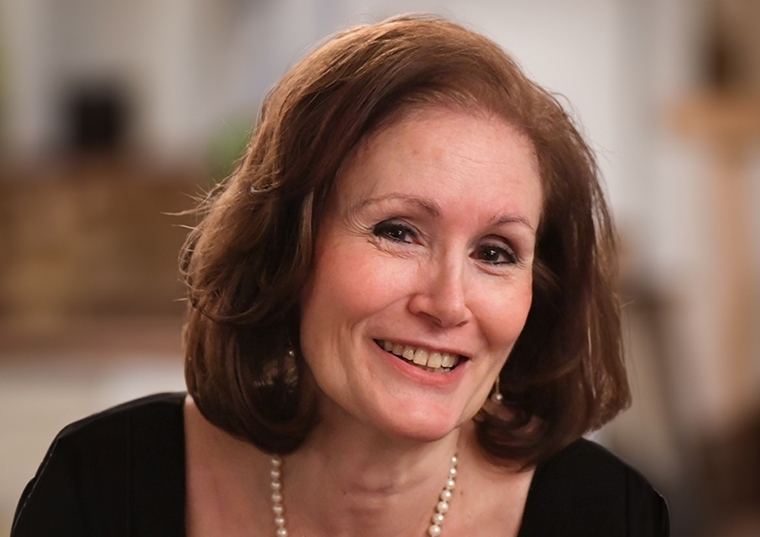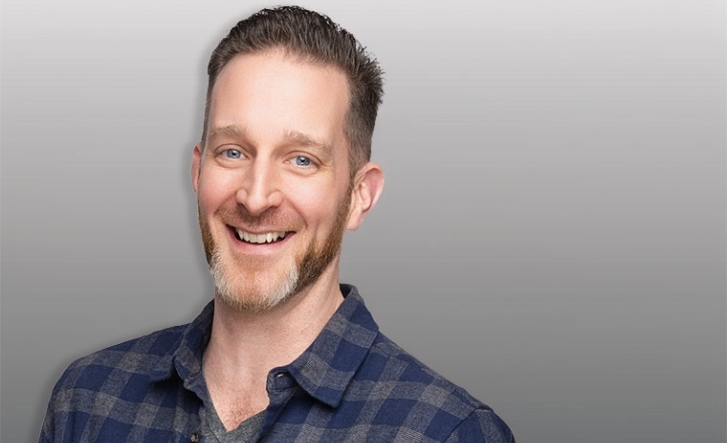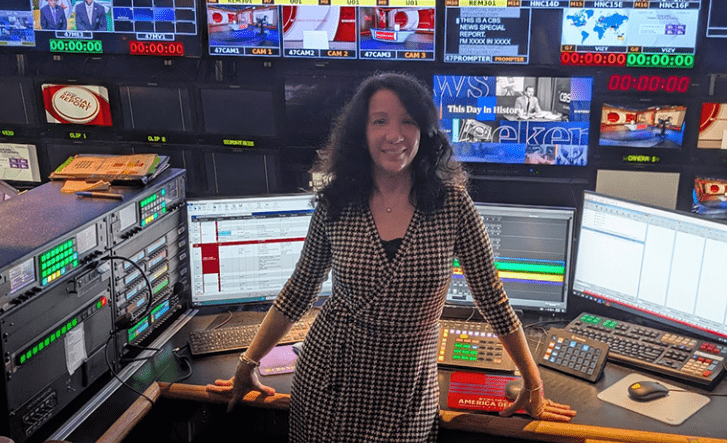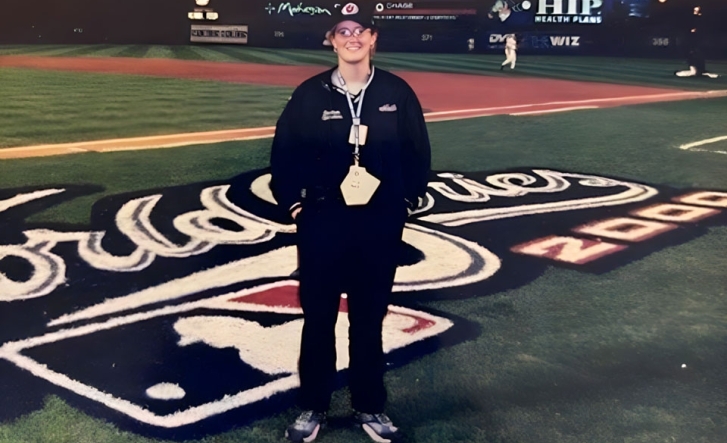Award-Winning Clinical Laboratory Scientist Reflects on 40-Year Career
Angela Tomei Robinson ‘79MT, ‘85GP recently retired after a career in clinical health science that spanned more than 40 years. As a student in the College of Pharmacy and Allied Health Professions (now called the College of Pharmacy and Health Sciences (CPHS)), she was the first medical technology student to be named a member of the President’s Society, the University’s highest honor for undergraduates. She was also awarded the Scientific Products New York State Outstanding Medical Technology Student of the Year Award.

I had great mentors as a student, and that experience inspired me to become one as well. Graduating from a university that supports your career as a student into becoming a professional is all part of mentoring.
The University has also honored her with the Medical Laboratory Technology Alumni Award and Preceptor of the Year. She became the first and only Medical Lab Professional recipient of the CPHS Distinguished Practitioner of the Year Award in 2018. Ms. Robinson was also awarded the Lifetime Achievement (NYS) by the American Society for Clinical Laboratory Science 2019.
An advocate for the clinical laboratory profession, she served as Chair of the Professional Standards Coalition for Clinical Laboratory Science, with more than 14 professional societies lobbying for state licensure. Since attained, she continues to serve on the Clinical Laboratory Technology Board for the New York State Education Department (NYSED), including past Chair.
Today, she continues advocating for medical laboratory science with several articles on the subject. She has been a featured speaker at conferences and a guest on various podcasts. She recently shared her thoughts on the field of Clinical Laboratory Sciences and her experiences at St. John’s University.
What initially drew you to the field of medical laboratory science, and why did you choose St. John’s?
As a high school student, I became interested in health care since family members and I had various conditions—but I was definitely not interested in direct patient contact. Fortunately, my high school guidance counselor suggested a Clinical Laboratory Science degree since it was pre-med and would still allow me to continue to medical school. After the clinical laboratory internships, I chose not to pursue medical school, and instead become a board-certified Clinical Laboratory Technologist (which is now referred to as a Medical Laboratory Scientist). It was great advice to a young high school student.
My mother found that St. John’s had an outstanding program and suggested I stay local. It was the wisest decision I ever made. St. John’s provided me with a disciplined education and the background needed to evolve as a professional. I was able to intern at a local hospital and the clinical internships in chemistry/blood banking/microbiology/hematology captivated me. There was no turning back.
What do you find most rewarding about your work in medical laboratory science, both during your active career and in your semiretirement?
I became nationally board certified by the American Society for Clinical Pathology (ASCP) and was employed as a generalist bench tech with specialty in hematology. I loved the behind-the-scenes laboratory testing—viewing cells under the microscope and having firsthand knowledge of laboratory results. More than 70 percent of medical decisions and diagnosis depend on regulatory compliance of quality standards of laboratory testing.
I worked with risk management, quality assurance, education, and laboratory information systems, and I was passionate about being the liaison leader for my staff while collaborating with other medical professionals such as nurses, residents, physician assistants (PA), and doctors.
I was also involved with NYSED by advocating that medical laboratory professionals be licensed similarly to nurses and PAs, doctors, and pharmacists. In 2006, I became the first medical laboratory professional on Long Island to be licensed. I still serve on the Office of Professions board.
How do you see the field of medical laboratory science evolving over the next decade?
Health care is challenging, but not without opportunities. Hopefully with increased media attention, public awareness, industry respect, and legislative support will attract, recruit, and retain qualified, board certified and right-to-practice licensed Medical Laboratory Professionals. The traditional National Accrediting Agency for Clinical Laboratory Sciences (NAACLS)-accredited educational curricula (used at St. John’s University) continues to grow and expand along with new innovative programs and strategic affiliations.
What emerging trends or technologies do you see shaping the future of medical laboratory science?
Molecular continues to expand immensely in laboratory medicine. At one time, it was merely a paragraph in a chapter in a textbook. Medical laboratory professionals are also venturing into careers in both health care and public health, including infection prevention—areas that were historically not available to these unsung, behind-the-scenes heroes of health care. Today, the Doctor of Clinical Laboratory Science can be part of the data management team that brings the value of laboratory to the forefront of health care.
What are some of the key skills and qualifications that are essential for a successful career in this field?
A medical laboratory professional performs and manages quality standards of laboratory testing to aid in the detection diagnosis and treatment of disease for patient care. That’s why they need
the ability to continuously learn and develop.
a meticulous attention to detail.
the ability to follow established protocols and regulatory policies.
the ability to work independently, as well as with a team.
technical expertise with sophisticated instrumentation, from microscopy to analyzers.
the ability to manage their time well.
the ability to multitask.
the ability to monitor, maintain, and document detailed records.
a keen interest in serving the public through quality.
Can you talk about the importance of certification and continuing education for medical laboratory scientists?
Certification sets minimum standards for medical laboratory professionals to ensure quality laboratory testing for patient care. Certification is recognition of competence through a non-government national professional organization such as ASCP, which is the oldest and largest agency established in 1928.
Continuing education is the additional learning activities and professional development offered by professional societies and associations as a means by which professionals maintain in-depth acute knowledge and keen skills with technological advancements and regulatory compliances.
I also strongly recommend belonging to a professional society—one that speaks your voice—as networking and collaborating with colleagues is so critical to a successful career.
What unique aspects or strengths does the Clinical Laboratory Science program at St. John’s University offer to its students?
St John’s University offers a strong foundation of education, along with a solid sense of discipline for a successful career.
St. John’s program is accredited by the National Accrediting Agency for Clinical Laboratory Sciences and approved by the NYSED. The Bachelor of Science degree leads to national board certification from the ASCP, as well as NYSED licensure.
Beyond that, St. John’s does a remarkable job of mentoring students. I had great mentors as a student, and that experience inspired me to become one as well. Graduating from a university that supports your career as a student into becoming a professional is all part of mentoring.



